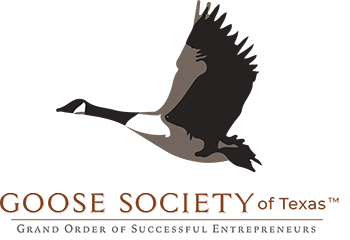Syzygy Raises $5.8 Million to Reduce Carbon Emissions in Chemical Manufacturing
HOUSTON, Texas — Syzygy Plasmonics, a technology company developing the world’s highest performance photocatalyst, today announced it has raised $5.8 million in Series A funding. Co-led by The Engine, the venture capital firm launched by MIT in 2016 to invest in early-stage Tough Tech companies, and by The GOOSE Society of Texas, a Houston based investment group comprised of successful entrepreneurs that invest in early-stage disruptive technology companies. The round includes participation from EVOK Innovations and angel investors from Creative Destruction Labs-Rockies Cohort.
Syzygy is developing a new photocatalytic chemical reactor powered by light from renewable electricity instead of heat from burning fuel. Syzygy’s photocatalytic reactor holds promise to revolutionize the industrial gas, chemical and energy industries by drastically reducing the cost and carbon emissions in the production process for a wide range of major commodity chemicals such as fuel, fertilizer and plastic. Based upon two decades of research and breakthroughs in materials science from world-renowned Professors Naomi Halas and Peter Nordlander at Rice University (Laboratory for Nanophotonics), the photocatalyst being used is orders of magnitude more active, stable and efficient than any previous photocatalyst.
“The pioneering work by Professors Halas and Nordlander and the commercialization efforts by Syzygy — a tremendous synergy between academia and industry — gives the energy industry a new advantage in the fight against climate change,” said Trevor Best, CEO and co-founder of Syzygy. “We see a future where it is possible for all fuels, chemicals, and fertilizers to be produced both sustainably and at a lower cost than other options. We now have a real opportunity to reduce, if not completely, eliminate the carbon footprint associated with these production process.”
“We started Syzygy to utilize breakthroughs in plasmonic science to drastically reduce the cost and carbon emissions in the chemicals and energy industries,” said Suman Khatiwada, CTO and co-founder of Syzygy. “Our technology has the potential to provide a positive global impact on these industries and the people they serve by enhancing sustainability, improving accessibility, lowering cost, and enabling new business models.”
The new investment will power Syzygy’s facility expansion and hiring to scale product development of its photocatalytic reactor.
“Syzygy is creating a platform technology through its new photocatalytic chemical reactor that has the potential to transform how we approach chemicals manufacturing — using light instead of burning fossils as a new power source for chemical reactors,” said Katie Rae, CEO and managing partner of The Engine. “The Engine is thrilled to help advance the mission of this incredibly driven and passionate team of founders to enable a future of zero-emission chemicals manufacturing.”
Today’s investment comes on the heels of other significant developments for Syzygy. Earlier this year, Syzygy received grants from the Department of Energy for the development of a reactor to create hydrogen from ammonia and from the National Science Foundation SBIR Program for the development of a reactor that processes carbon dioxide.
Samantha Lewis, Director of GOOSE, commented, “The Syzygy team is sound, the technology is incredibly exciting, and we love the Rice University connection. GOOSE is very pleased with this investment and excited about GOOSE investor Don Kendall, former board director of Solar City, taking the lead as a board director of Syzygy.”
Additional Press:
